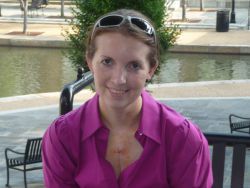
PITTSBURGH, PA--Life after survival from cardiac arrest is fraught with challenges for patients and loved ones alike, according to newly published research conducted among members of the Sudden Cardiac Arrest Foundation’s online community, the Sudden Cardiac Arrest Network.
While contemporary research among survivors has focused on functional abilities and cognitive or neuropsychiatric measures, this study sought to identify themes unique and important to cardiac arrest survivors and their family members and friends, so that results could serve as a basis for future patient-centered interventions and resources.
“Understanding survivors’ psychosocial perceptions of life in the aftermath of cardiac arrest is the first step to development of interventions and resources that meet the needs of survivors, their loved ones and the larger support system,” said Kelly Sawyer, MD, MS, lead author from the Beaumont Health System in Royal Oak, Michigan [1]. Dr. Sawyer, an emergency physician, is also a survivor of cardiac arrest.
The study consisted of an Internet-based survey distributed to 1,060 survivors and family members and friends in the community, using discrete multiple choice questions and open-ended questions. Independent researchers conducted inductive thematic analyses using accepted qualitative research methods. There was an 18.5% response rate from 157 survivors and 39 family members and friends.
Survivors responding to the survey had the following characteristics:
- Ages ranged from 18-81, with the majority of respondents (60%) between the ages of 41-60.
- Most events occurred in public places (57%).
- 35% of patients received therapeutic hypothermia.
- 69% of patients received implantable cardioverter defibrillator (ICD) therapy.
- 95% of patients were discharged home.
- Most survivors (69%) were able to return to work or school with no limitations; another 25% were able to return with limitations.
- Most survivors (75%) had memory loss near the time of the event.
- Many survivors (22%) continue to have memory issues.
- The biggest challenges for survivors are anxiety, memory loss, re-establishing a routine, depression, driving, work/school, and financial concerns.
Survey results showed that discharge counseling was primarily provided by doctors (65%) and nurses (24%). However counseling was largely unhelpful. The most common bit of advice (54%) was to “Take it easy.” Many survivors (19%) said they received no counseling.
Researchers uncovered several global themes conveyed by survivors, including:
- The significance of others
- The idea that “We are in this together”
- The perception that the number of feelings is overwhelming
- The need to find “a new normal.”
Major themes for survivors include the desire to locate and share with others, subculture identification (i.e., cardiac arrest is not the same as a heart attack), mental health issues, financial concerns, lack of preparation for emotional and cognitive issues, and changed relationships.
Family members and friends identified several global themes including:
- Lack of information at discharge
- Lack of mental health resources
- Fear it could happen again.
Major themes for family members and friends included memory loss around the time of the event and afterwards, the fact that no information was provided at discharge, the fact that follow-up appointments centered on cardiology but did not address psychosocial issues, the idea that peer support would be helpful, and the need to know what to expect going forward.
While study respondents represent a self-selected sample of people with Internet access and functional ability to complete the survey and may not be representative of the population at large, the research serves to inform clinicians and researchers on the complexity of survival and themes that are important to survivors and their loved ones.
This qualitative pilot study takes a necessary step in assessing how patients experience life after survival and also provides insights into the experiences of loved ones. There is an apparent need for support networks and social media groups with expertise from people who are trained in supportive care for others.
Study recommendations include developing a system for discharge counseling that includes follow-up re-evaluation and reiteration of instructions, and expectations and resources for survivors and loved ones, including options for peer support.
The Sudden Cardiac Arrest Foundation’s online community provides one option for survivors and their family members and friends. To join the community, visit www.sca-aware.org.
Mary M Newman, MS, president of the Sudden Cardiac Arrest Foundation, presented this research on October 21st at a Take Heart America meeting in Minneapolis, MN.
In addition to Dr. Sawyer, the research team included Frances Brown, PsyD, LP, Roxanne Christensen, MA, TLLP, and Colleen Damino, PsyD, Michigan School of Professional Psychology; Mary M. Newman, MS, Sudden Cardiac Arrest Foundation; and Michael C. Kurz, MD, MS-HES, University of Alabama School of Medicine.
[1] Dr. Sawyer is now an Assistant Professor of Emergency Medicine at the University of Pittsburgh.
| Documents | Size |
|---|---|
| surviving_cardiac_arrest_thtm_final_on-line.pdf | 137.94 KB |
